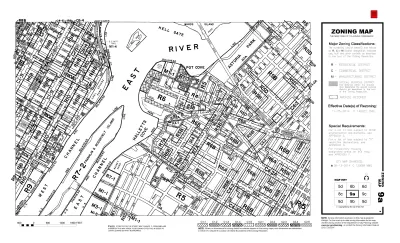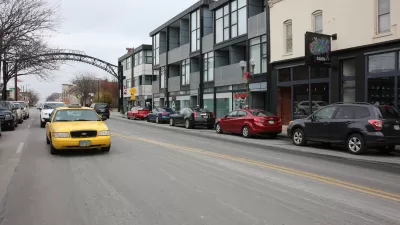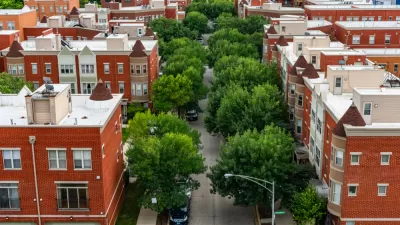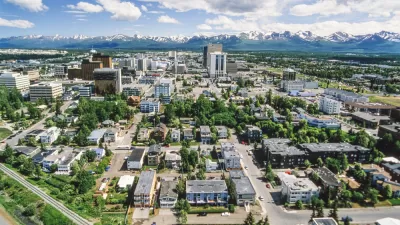A new database measures the restrictiveness of exclusionary zoning practices around the country. Exclusionary zoning, it turns out, is much more prevalent than commonly acknowledged.

The Eviction Lab has created a new tool to document exclusionary zoning practices around the United States as a first step creating the new housing necessary to ease rising housing costs in communities.
Writing for the Eviction Lab, Matt Mleczko and Matthew Desmond introduce the challenge of reforming zoning when so little is known about zoning in the aggregate.
“Zoning is fundamental to the make-up of our communities and our neighborhoods, but understanding these regulations and how they vary within and between places is enormously challenging. In large part, that’s because we lack straightforward, nationwide data,” according to the article.
Mleczko, Desmond, and the team at the Eviction Lab are attempting to fill that void with the launch of the National Zoning and Land Use Database (NZLUD). The duo have also authored an article for the Urban Studies journal to describe the process of creating the NZLUD, and have shared their data and code on GitHub.
The process created a metric the team dubbed the Zoning Restrictiveness Index (ZRI) to compare the restrictiveness of development regulations across jurisdictions. “We find highly-restrictive zoning policies in some of the coastal metro areas you might expect—Washington DC, New York, Seattle—but also in rustbelt metro areas like Milwaukee and Detroit,” write Mleczko and Desmond. “This underscores that exclusionary zoning is more common than many have acknowledged, both across and within metro areas.”
As measured by the ZRI, the most restrictive metropolitan areas are 1) Washington-Arlington-Alexandria, DC-VA-MD-WV; 2) New York-Northern New Jersey-Long Island, NY-NJ-PA; 3) Providence-New Bedford-Fall River, RI-MA; 4) Seattle-Tacoma-Bellevue, WA; and 5) Tampa-St. Petersburg-Clearwater, FL.
The remainder of the top ten, which, perhaps shockingly, does not include any Californian metropolitan areas, can be found at the link below. Example maps of depicting ZRI quintiles for the San-Francisco-Oakland-Fremont metropolitan statistical area (MSA) and the Houston-Sugar Land-Baytown MSA are also included.
FULL STORY: To reform exclusionary zoning, we first need to document it. Now we have a tool for that.

Maui's Vacation Rental Debate Turns Ugly
Verbal attacks, misinformation campaigns and fistfights plague a high-stakes debate to convert thousands of vacation rentals into long-term housing.

Planetizen Federal Action Tracker
A weekly monitor of how Trump’s orders and actions are impacting planners and planning in America.

In Urban Planning, AI Prompting Could be the New Design Thinking
Creativity has long been key to great urban design. What if we see AI as our new creative partner?

Portland Raises Parking Fees to Pay for Street Maintenance
The city is struggling to bridge a massive budget gap at the Bureau of Transportation, which largely depleted its reserves during the Civd-19 pandemic.

Spokane Mayor Introduces Housing Reforms Package
Mayor Lisa Brown’s proposals include deferring or waiving some development fees to encourage more affordable housing development.

Houston Mayor Kills Another Bike Lane
The mayor rejected a proposed bike lane in the Montrose district in keeping with his pledge to maintain car lanes.
Urban Design for Planners 1: Software Tools
This six-course series explores essential urban design concepts using open source software and equips planners with the tools they need to participate fully in the urban design process.
Planning for Universal Design
Learn the tools for implementing Universal Design in planning regulations.
Gallatin County Department of Planning & Community Development
Heyer Gruel & Associates PA
JM Goldson LLC
City of Camden Redevelopment Agency
City of Astoria
Transportation Research & Education Center (TREC) at Portland State University
Jefferson Parish Government
Camden Redevelopment Agency
City of Claremont





























